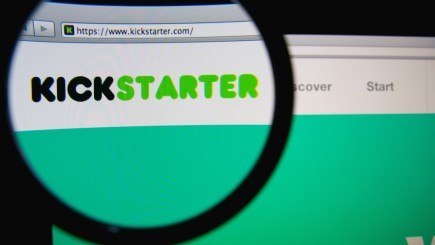What is the main cause of kickstarter campaigns and crowdfunding projects failure? Is it all about communication or is there something else?

Issue that many consumers face when backing up the project that is still in development is the lack of communication from company’s side, where it fails to delivery, notify or in any way engage their user base. Statistics shows that around 84% top crowdfunding campaigns are never finished on time. That’s fine. Some people don’t realize that systems like Kickstarter are not a marketplace to buy latest product. It is an investing platform where you act, by consequence, as an investor.
Today, we are gonna take a look at the right and wrong way of running a kickstarter campaign and draw a conclusion why communication is the key, and is it the only key to success of crowdfunding?
The Wrong Way of Handling Delays


Let’s take Mighty No 9 game.
Project was supposed to be due September 2015, but has been delayed till 2016 which was not announced until Red Ash, their second kickstarter campaign was launched, but didn’t meet the goal. The delay in between caused a backlash in kickstarter community, since company failed to deliver, yet announced a new game.
Shortly after that, to apologize for the delay, company announced that they will be releasing demo version of the game Mighty No 9 to backers who pledged more than 80 dollars, and again company failed to deliver that as well.
“Although the demo had been finished and was ready to go, we ran into some very last-minute and unexpected complications with distributing the demo exclusively to all our backers through Steam.” – writes The Mighty Team
When you look at the comment section under the update status you will find many angry backers. What went wrong is indeed a lack of communication, not that fact that company tried to run a different campaign in between, although that could contribute to the overall displease of original project backers.
The Right Way of Handling Delays


Now onto our next “contestant” Energy Hook. The game combines grappling-and-swinging-and-running-on-walls (a la Spider-Man 2) with stylish extreme sports action (à la Tony Hawk), by the guy who invented the swinging gameplay in Spider-Man 2. – from Steam Greenlight Project Description.
Developers of Energy Hook wanted to bring the game to Xbox One, which would mean a delay in production and release. Developer reached out to Kickstarter community and ran a survey on, whether or not seize the opportunity for Xbox release or continue the original plan. More than 80% voted yes and developers went on ahead with XBox release as well. Those who were not satisfied with the plan changes were offered refunds and developers were trying to get plenty of MS Xbox access keys to preview the game prior launch. As with any projects there were minor delays here and there, but everyone was kept in the loop resulting in a positive attitude and support from the community.
Communication is The Key
Don’t leave your audience in the dark. Don’t try to pursue other opportunities when you have another to deliver. Focus on your project and keep everyone involved, that includes backers and customers, in the loop. Delays happen, we are all human beings, make mistakes, and in the end things happen out of our control.
What matters is that you communicate and be always transparent about what are you doing and what’s happening. As long as the reason is valid and path is clear, people will understand and continue to support your project.





